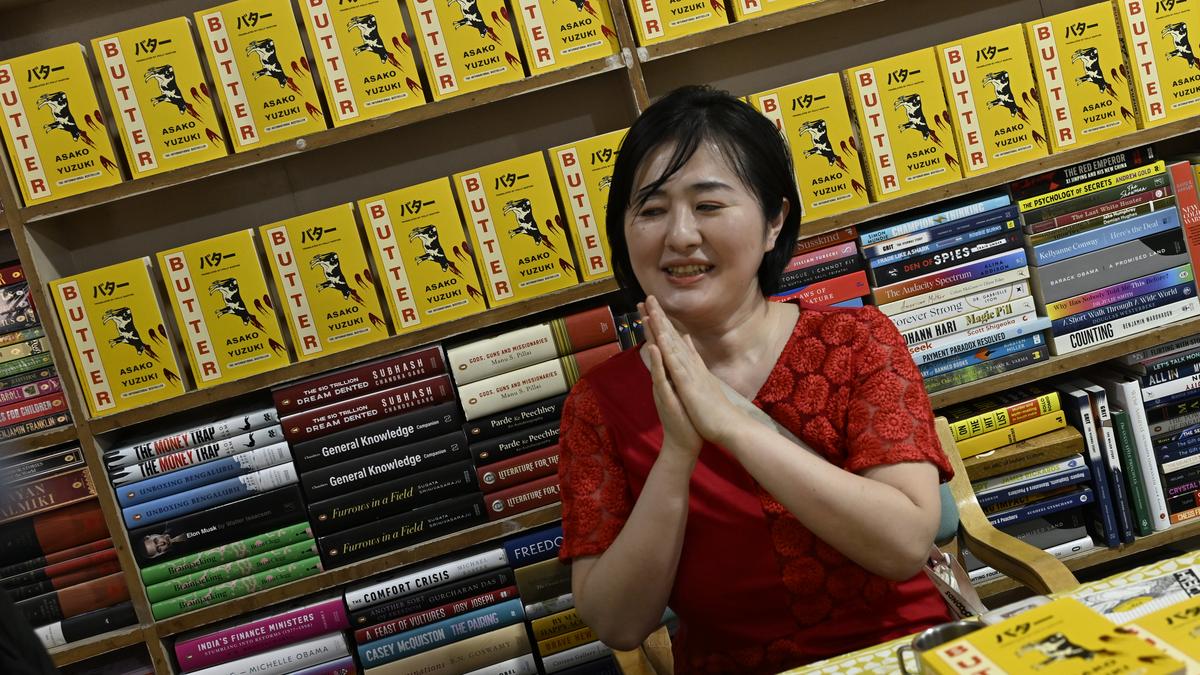
Japanese author Asako Yuzuki on how she stumbled on fame by chance with Butter
The Hindu
Japanese author Asako Yuzuki talks about her acclaimed novel Butter and her first trip to India
Japanese novelist Asako Yuzuki was one of the panellists at the recently concluded Alliance Literary Festival in Bengaluru. Speaking with the aid of a translator, Asako shared some of her observations about writing, India and interpersonal relationships.
Perhaps best known for Butter, Asaka says she was surprised by the popularity it garnered. “I have written a lot of other books and I have no idea why Butter caught the limelight,” says Asako, adding that she lacks the skills to promote herself or market her work. “When I sent off the first chapter to Harper Collins I had no idea they would pick it up. Personally, I feel The Nile Perch Women’s Club was better by far.”
Her reticence is understandable — a quick glance at her Wikipedia page shows awards seem to pass her by, having been nominated numerous times, but winning only occasionally.
Talking about why she likes The Nile Perch Women’s Club, Asako says, ”The book required quite a bit of effort on my part and it talks about the meaningful relationships between women of different ages and classes. The Nile Perch Women’s Club is about an unusual friendship between an older woman and a younger one.”
However, Asako is candid in admitting that it did not do well in Japan as it went against the traditional norms of society there where women occupy a submissive role. Though many cultivate them, close friendships between women seem to be frowned upon, leaving those who do enjoy them tight-lipped about their companionships, she says, adding, “I am hopeful that if translated into English, The Nile Perch Women’s Club would become well-known in other parts of the world.”
Though most of her works revolve around interpersonal relationships, Asako says it is not because of a penchant for human psychology. “I am an ardent fan of French Literature and I am intrigued by how authors such as Balzac crafted their stories; it was like reading letters from that era, encompassing life, culture and society.”
“They were ahead of their times with their style and depiction. And much like letters, those works too, shone a light on human relationships,” she adds.

 Run 3 Space | Play Space Running Game
Run 3 Space | Play Space Running Game Traffic Jam 3D | Online Racing Game
Traffic Jam 3D | Online Racing Game Duck Hunt | Play Old Classic Game
Duck Hunt | Play Old Classic Game











